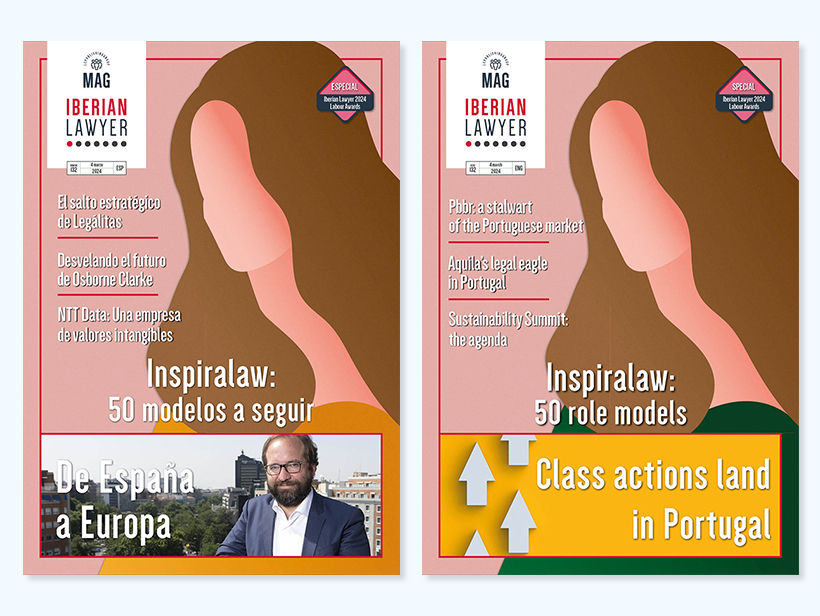A View from business: Avoiding a litigation culture in Europe
European Commission proposals for private anti-trust claims will expose Europe to the excesses of the US litigation culture, believes Malcolm Carlisle, Group Managing Director of Eschmann Holdings and Chairman of the European Justice Forum.
Malcolm Carlisle, Director Generall del Grupo de Eschmann Holdings y Presidente del Foro Europeo de Justicia opina que las actuales propuestas de la Comisión Europea que introducen reclamaciones antitrust expondrán a Europa a los mismos excesos que ya sufre la cultura de litigios estadounidense. Argumenta que el modelo estadounidense de normativación de la vida privada a través de litigios civiles es un costoso fracaso e impone enormes gastos a cambio de pequeñas ganancias netas. La UE no debería cometer el mismo error.
{mosimage cw=120}While the European Commission is entirely correct in wishing to avoid creating a litigation culture in Europe, by enabling individual consumers to bring anti-trust actions – as proposed in their current Green Paper Damages actions for breach of the EC antitrust rules – they will unfortunately have the opposite effect.
This is because the Commission wrongly assumes that the state of civil litigation mechanisms in EU member states is static, and will not be subject to the excesses that are identified in US litigation culture.
In fact, EU national litigation systems are already inevitably evolving to adopt USstyle mechanisms (especially class action mechanisms and contingency fees), and the result will be that increased class action litigation will be inevitable in Europe.
I believe that there is no need to single out competition claims for special treatments, and procedural changes to competition claims would inevitably spread to other areas of law.
Most of the Green Paper proposals aim simply to encourage more litigation, by improving the financial incentives for people to bring claims. This assumes that more litigation is necessarily better, without acknowledging that many claims are not meritorious.
The Green Paper talks about enabling consumers to bring claims, on the assumption that they do not have the financial incentive to bring low-value claims that affect many people. It rightly assumes that most competitor companies will have sufficient funds to claim. But the Commission’s analysis ignores the reality that by altering the financial incentives in litigation, it is creating new incentives for lawyers to support litigation.
The end result will be to increase unmeritorious litigation in Europe, imposing a sizeable tax on businesses (lawyers’ transactional costs, mostly unmerited) which will be passed on to consumers in the form of higher prices and will make the EU economy less competitive.
The US model of privatised regulation through civil litigation is an expensive failure, and imposes huge costs for little net gain. The EU should not make the same mistake.
Similarly, the mechanism of empowering consumer organisations to institute litigation, as quasi-regulators, has not been a success, and should be abandoned. General purpose consumer associations do not have broad representative legitimacy and do not actually represent any particular class of claimants in a specific matter.
I believe that the right way forward is to maintain strong regulatory mechanisms, avoiding regulation by litigation and improve modernisation of member states’ civil litigation systems, but maintaining proportionality of legal fees through strong regulation, and controlling class action mechanisms so as not to increase unmeritorious claims.
Although communicated in terms of public interest in enhancing the EU economy, and consumer protection, the general desire to expand private litigation will neither serve the public interest nor assist with proper enforcement of competition law in Europe, and is likely to have unintended consequences in other areas of substantive law and civil procedure.
What is needed is a coalition of interests between legislators, consumers and industry to agree on a balanced system of civil liability that respects the overall interests of society.
In the US, the overall cost of tort actions has reached 2% of GDP. That is a burden that Europe neither wants nor can afford. European Justice Forum was founded two years ago with the specific aim of finding equitable solutions to this problem.
Malcolm Carlisle is a lawyer, Group Managing Director of Eschmann Holdings and Chairman of the European Justice Forum – a coalition of businesses, individuals and organisations that are seeking to ensure that the legal environment in Europe protects both consumers and businesses alike. Its members come from all sections of industry (see www.europeanjusticeforum.org).














